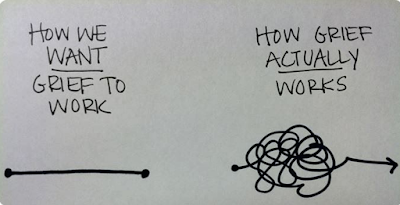The Art of Memory: Jorge Luis Borges and "Funes the Memorious"
Access. Access. Access.
Yesterday in class we explored digital history. The plethora of digital documentation was on everyone's minds. We discussed how archivists will try to preserve and historians of the future will try to sort through all the video clips, recordings, tweets, texts, status updates, social media profiles, emails, blogs, etc. that we all produce.
Someone claimed that people don't need to be educated formally anyone -- they can just go to the internet and become experts on topics that interest them. Another person exhorted that people don't need to read anymore, don't need to know anything -- because everything is always accessible at the touch of a button.
I said I thought they needed more skills, not fewer, to make sense of all the information to which they have access. Or, perhaps different ones?
It led to a conversation about how to make meaning from all this "stuff," how information requires interpretation, how the challenge of navigating material has replaced the challenge of accessing it. What is useful? What can be trusted? How can we make sense of it all? And how can we avoid the trap in which sifting through information -- consuming information -- comes at the expense of actually doing anything about the things that matter to us?
It reminded me of Borges. Well, actually, it reminded me of Borges' Ireneo Funes.
"Funes the Memorious," a short story by Jorge Luis Borges, has grown on me over time. Perhaps it has even become a part of me, if a story can do that. Borges, born in Buenos Aires in 1899, was a poet, short-story writer, essayist and the first of the Latin American magical realists. He was also a library director, so he knew his way around organizing information. If I could choose anyone to invite to a dinner party, Borges would definitely be at the top of the guest list.
Yesterday in class we explored digital history. The plethora of digital documentation was on everyone's minds. We discussed how archivists will try to preserve and historians of the future will try to sort through all the video clips, recordings, tweets, texts, status updates, social media profiles, emails, blogs, etc. that we all produce.
Someone claimed that people don't need to be educated formally anyone -- they can just go to the internet and become experts on topics that interest them. Another person exhorted that people don't need to read anymore, don't need to know anything -- because everything is always accessible at the touch of a button.
I said I thought they needed more skills, not fewer, to make sense of all the information to which they have access. Or, perhaps different ones?
It led to a conversation about how to make meaning from all this "stuff," how information requires interpretation, how the challenge of navigating material has replaced the challenge of accessing it. What is useful? What can be trusted? How can we make sense of it all? And how can we avoid the trap in which sifting through information -- consuming information -- comes at the expense of actually doing anything about the things that matter to us?
It reminded me of Borges. Well, actually, it reminded me of Borges' Ireneo Funes.
"Funes the Memorious," a short story by Jorge Luis Borges, has grown on me over time. Perhaps it has even become a part of me, if a story can do that. Borges, born in Buenos Aires in 1899, was a poet, short-story writer, essayist and the first of the Latin American magical realists. He was also a library director, so he knew his way around organizing information. If I could choose anyone to invite to a dinner party, Borges would definitely be at the top of the guest list.
Once the story seeped in, it just stayed with me. In it, we meet Ireneo Funes. Paralyzed after having been thrown from a horse, Funes lived physically within the confines of one room. But for him, the changes that had come with the accident were an awakening.
"For nineteen years, he said, he had lived like a person in a dream: he looked without seeing, listened without hearing, forgetting everything, almost everything."
The accident that cost him his ability to move his limbs had also given him a gift: infallible memory. When he awoke from a period of unconsciousness, those nineteen years of mere mortal memory were a thing of the past. (No pun intended?) Every single detail, lost to the rest of us, he retained. Streaks on windows, the patterns of the southern clouds, every leaf on every tree AND every moment during which he viewed those leaves.
Funes could remember every single event that occurred in one day. The trick was that it took him a whole day to do the remembering. Confined to his room, he inhabited his memories fully. He lost his ability to have general ideas. Everything was detail. Detail was everything. "The least important of his memories was more minute and more vivid than our perception of physical pleasure or physical torment."
Our narrator leaves us with this thought, "I suspect that he was not very capable of thought. To think is to forget differences, generalize, make abstractions. In the teaming world of Funes, there were only details, almost immediate in their presence."
For me, this is the heart of the story, the lesson we all need to remember. Far from an act of extrapolating information that resides in the brain --- like Dumbledore's pensieve -- memory is creative. It entails sifting and sorting --- forgetting, merging, pulling some experiences to the forefront, pushing others back.
Funes could not do this. We can and we must. This is how we construct our pasts out of millions of moments. It is how we make the past intelligible and meaningful. We can't and shouldn't relive the past -- but harness it to provide insight into the present and a vision for the future.
It's a hell of a short story.










Comments
Post a Comment